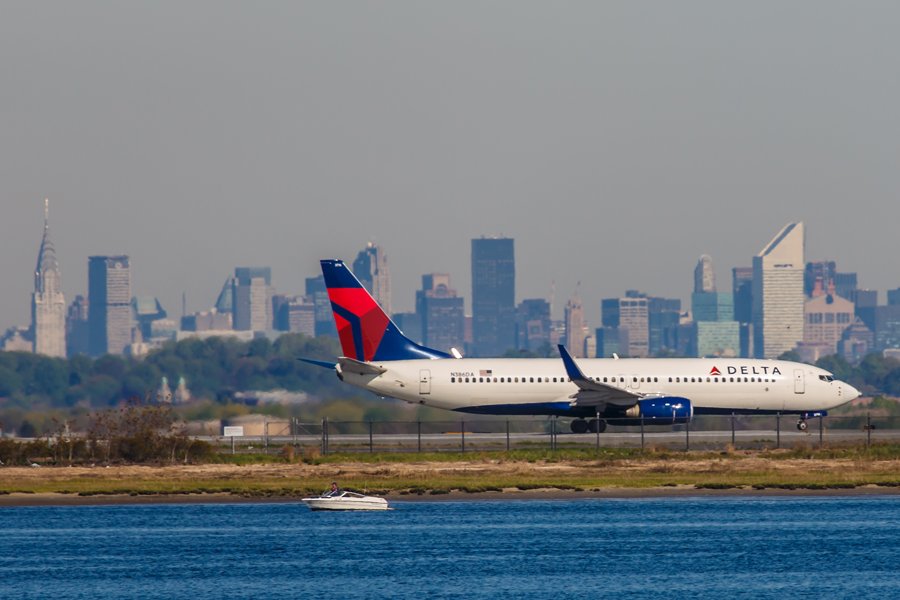Delta Air Lines’ corporate sales in the third quarter increased 8% year over year and “trended positively through the quarter,” according to Glen Hauenstein, president, speaking on an earnings call. That rebound after a “spring swoon” of uncertainty and tariff issues — as well as premium seat and loyalty demand — led the carrier’s 4% revenue increase for the quarter, according to executives.
Ed Bastian, CEO, said that corporations “suspended” travel in the early part of the year. He continued that there was some level of pent-up demand to get back out. For four or five months, he said, there was no corporate growth, “and then they all got back on the road together at the same time.”
According to Hauenstein, “there’s a lot of opportunity to as we look forward here as corporations are still not traveling in the volumes they did pre-pandemic.”
Third-quarter passenger revenue for the main cabin was down 4% year over year, but premium-product revenue increased 9% for the period, according to the carrier.
Hauenstein estimated that corporate travel accounts for 30% to 40% of premium revenue. He also added that the difference between yields on corporate and high-end leisure were “very, very different” he said. In some cases, personal leisure is higher than corporate, and one of the issues Delta has had to work on is “sometimes we run out of seats for corporate, and we have to go and put more seats in the market because corporate was getting squeezed out by higher-yielding leisure.”
In a recent Delta survey of corporate customers, 90% of respondents anticipate that 2026 travel volumes will increase or remain steady year over year. “We see opportunities for further growth as corporate confidence rebuilds,” said Hauenstein.
The airline reported $13.5 billion in third-quarter passenger revenue, up 3% year over year, on total revenue of nearly $16.7 billion, which was an increase of 6% versus the third quarter of 2024. Net income was $1.4 billion, up from the $1.3 billion reported a year earlier.










